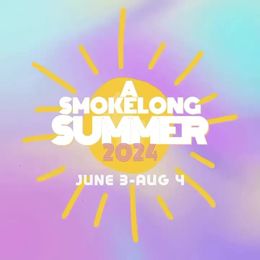You are currently working on a novel and a collection of short stories. Can you tell us more about these projects? How do you move between long and short form? Do you have a favorite?
Am I working on a novel? I guess so. I say I’m “working on a novel” because the guilt of knowing I’ve said that (and publicly) keeps me … honest isn’t the right word. Maybe on the hook. Beholden to the work, something like that. This book has been about many things, but right now it’s about musician siblings and “making” things, be it art or music or whatever. There’s also some stuff about technology and algorithms and the nature of writing, as well as anxiety about, as Mary Robison wrote, the “awful, plaguing thing” of having only a little talent, or maybe none at all. For some misguided reason I keep trying to make this book a kind of thriller.
The story collection is about a lot of stuff, as I guess story collections often are. Florida is a kind of linchpin in many of them, even though I often find myself writing about ideas or representations of the state, be they my own or those of the country at large, rather than, say, its actual sense of capital-p Place. Lots of siblings in these stories. Fathers and sons, mothers and daughters. And then strange stuff butting up against the real: waterpark sharks, augmented reality, time capsules, mob bosses… I’m really interested in that place between believable and unbelievable, where real things are happening, however unlikely they are. That’s Florida in a nutshell, isn’t it?
It’s definitely easier to write stories; I wish it were easier to write the novel. A strange thing happened when I started working on a novel, though: all of my stories got much, much longer. I used to write flash all the time, almost exclusively; now I struggle to keep a story under 15 pages. I guess my brain is changing.
You keep a running list of the books you’ve read on your website, along with the books you’re currently reading, which I think is a fantastic idea (I’ve been doing something similar on Instagram but sometimes I get lazy and don’t post all the books). From your 2019 list so far, what single book would you most recommend to our readers?
I stole this idea from Matt Bell and C. Pam Zhang — they get the credit!
As for a 2019 rec for SmokeLong readers: Nicole Rivas’s chapbook A Bright & Pleading Dagger is essential reading for anyone who wants to write flash fiction.
Where do you write? Are you the type of writer who prefers the white noise of a coffee shop or the silence of home?
We just moved, and in my new place, I’m currently working from a couch and one of those folding dinner tray things. I hope to set a desk up on the porch this week. I try to write at the public library, though I often end up working from my kitchen table. To get anything substantial done, I feel like I have to leave the house. There’s something about being at home that I find incredibly distracting, at least when it comes to “getting the work done” or whatever. I work (i.e. write) better when I’m not in the house. Coffee shops are great. Anywhere without WiFi, that’s probably best, though it’s hard to come by. But if I’m really being honest, most of the actual writing I do probably happens in my head or in the notes app on my phone, when I’m walking the dog.
What kind of story would you love to find in the submission queue this week? Are there certain themes or styles you’re drawn to?
Good question. Hard to say. I think flash fiction is a special form of story, and I’m most interested in seeing pieces that engage with the form’s inherent limitations. I’m not as interested in “conventional” arcs and “conventional” methods when it comes to flash. I like density, though that doesn’t necessarily mean lyricism. I like tension and surprise, though that doesn’t necessarily mean plot. (Though I do like these things, too!) Is “bleakly funny” a theme or a style?
Ultimately, I think voice is the thing, and the sense of authority that can (should?) come with it. I don’t really even mean a character’s voice — more the voice of the writer coming through on the page. Some writers when you read them, you feel like you’re getting a glimpse into the workings of their minds, only expressed via the possible impossibility of fiction. Rivka Galchen is like this for me. Michael Martone is like this. Mary Robison, too. I love that. I’ll follow those kinds of voices just about anywhere.


 A SmokeLong Summer 24!
A SmokeLong Summer 24!